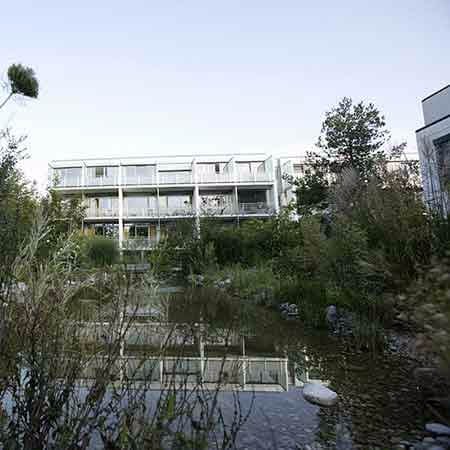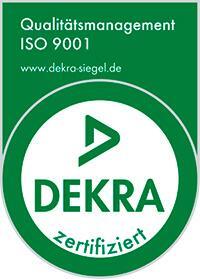Kidney cancer is a common disease, so the reliable statistics that allows determining the chances of each patient to fully recover or achieve remission is available today.
Content
- Treatment principles of Kidney Cancer (Renal Cell Cancer) in Germany
- Treatment options of Kidney Cancer (Renal Cell Cancer) in Germany
- Embolization for Kidney Cancer (Renal Cell Cancer) in Germany
- Types of surgical treatment of Kidney Cancer (Renal Cell Cancer) in Germany
- Treatment of metastatic renal cancer in Germany
- Immunotherapy for metastatic kidney cancer in Germany
- Radiation therapy for kidney cancer treatment in Germany
- Prognosis
- Treatment of Kidney Cancer (Renal Cell Cancer) in Germany
- Pricing of treatment kidney cancer in Germany
- Kidney cancer treatment in Germany with Booking Health
Treatment principles of Kidney Cancer (Renal Cell Cancer) in Germany
After establishing a diagnosis and staging of the disease on the oncological consultation, a cancer treatment strategy is developed.
For the complete healing of a patient, it is vital to remove as much pathological tissue as possible. Surgery, in this case, is aimed not only at the removal of tumor but also at preserving healthy tissues as much as possible. Even if the resection of the affected kidney is required, the chances of full recovery are very high, since only in very rare cases the tumor affects both kidneys simultaneously.
Treatment options of Kidney Cancer (Renal Cell Cancer) in Germany
Only after establishing the precise diagnosis and the stage of renal cell cancer tactics of renal cell cancer treatment can be determined. However, options for the treatment of kidney cancer include embolization and chemoembolization, radiation therapy, ablation, targeted therapy, and immunotherapy. Each of the methods may be administered alone or in combination with others.
A tumor that is limited by kidney borders usually allows carrying out surgical treatment to remove all the organ or a part of it. Surgery to excise a separate kidney part is called partial resection. It is the most common type of kidney cancer treatment. Surgery to remove all the affected kidney is called nephrectomy.
Sometimes alternative therapeutic methods are applied instead. Cure may be impossible if cancer spreads beyond the kidney, but what’s still possible is to control the tumor growth and manage the symptoms cancer causes.
Ablation is a treatment destroying malignant neoplasm whether through freezing (cryotherapy or cryoablation) or heating (radiofrequency ablation). These methods are recommended if there are specific indications.
If the disease is progressing, patients can receive targeted therapy.
Embolization for Kidney Cancer (Renal Cell Cancer) in Germany
With inoperable kidney oncology, clinicians working at German hospitals can prescribe embolization to patients.
Embolization is another alternative method used for kidney cancer treatment. Embolization is a procedure that cuts off the blood supply to the neoplasm, making it impossible for it to survive. Embolization is often prescribed when the health condition of the patient doesn’t allow to carry out surgery.
In Germany, embolizations are also prescribed as the preparation for removal of the kidney in order to prevent large blood loss.
Types of surgical treatment of Kidney Cancer (Renal Cell Cancer) in Germany
Different types of surgical interventions such as radical nephrectomy (removal of the kidney), radical resection of the kidney and ureter, partial nephrectomy (partial kidney removal), and laparoscopic kidney resection are applied in kidney oncology.
A widespread surgical method is radical nephrectomy. The radical nephrectomy includes incision of the kidney with the adrenal gland located above it and a fat layer surrounding the kidney.
During the partial resection, only a kidney part affected by a tumor is excised. As a rule, such an operation is indicated when both patient’s kidneys are affected by cancerous process, or when a patient has only one functioning kidney. Besides, partial resection is conducted when a tumor is small, i.e. less than 4 cm in size. The advantage of this approach is obvious: the patient doesn’t lose the whole organ. Since there is a danger that cancer cells are left in the body, such operations are made only in eligible patients.
Laparoscopic kidney resection is carried out through tiny incisions in the abdominal wall. A mini-camera is inserted through one of the incisions, allowing a doctor to see the kidney. Surgical instruments are introduced through the remaining incisions. This method is considered very effective; it is mainly used for the partial kidney resection. Thanks to laparoscopic surgery, the period of hospitalization is reduced, postoperative restoration is faster, and patients experience only mild postoperative pain.
When talking about the transitional renal cell cancer type, radical resection involving an excision of the ureter is the first-line method of cancer treatment. During the operation, not only the organ is resected, but the ureter and a small bladder part to which the ureter is connected as well. Based on the stage of renal cell cancer, chemotherapy or radiation therapy may also be needed.
Other treatment options complement or substitute surgical treatment.
Treatment of metastatic renal cancer in Germany
The tactics of metastatic kidney cancer treatment is based primarily on the clinical stage, taking into account the prognostic factors and individual risks. The morphological characteristics of renal cell cancer are determined in each particular clinical case.
Treatment of metastatic renal cancer is based on a combined approach using surgical treatment. These include radical nephrectomy or other type of kidney resection, removal of metastases (in the absence of absolute medical contraindications), immunotherapy, targeted therapy, and radiation therapy of individual metastases by indications.
Considering that renal cell cancer refers to tumors that are practically not sensitive to chemotherapy, the treatment of metastatic kidney cancer remains an extremely difficult task.
In most medical studies of cytostatics efficiency in patients with metastatic kidney cancer, the total response to treatment was no more than 6%. Studies that demonstrate a higher level of response to therapy (10-25%) included a small number of patients, in subsequent studies the effectiveness of the described schemes has not been confirmed.
Despite the resistance to cytostatics and hormone therapy, kidney tumors have a certain sensitivity to immunogenic effects. Taking into account the phenomenon of "spontaneous regression" of kidney cancer metastases, as well as cases of long-term remission in the absence of specific treatment, there’s a theory that indicates the activation of anticancer immunity and the subsequent suppression of tumor cells.
Immunotherapy for metastatic kidney cancer in Germany
Immunotherapy with cytokine preparations is currently the main method of metastatic kidney cancer treatment. Using cytokines makes it possible to suppress the growth of metastases.
Immunotherapy facilitates activation of the cells of the immune system, thereby negatively affecting the growth of malignant cells. In Germany, special immunotherapeutic drugs have been applied for more than 20 years.
According to the German Cancer Society, by using the combination of two drugs the oncologists of Germany managed to achieve a reduction of the tumor size or long-term absence of metastases. Currently, in German hospitals, scientific studies of immune checkpoint inhibitors are underway. The studies show that immunological medications are promising. They effectively fight cancer and at the same time have a positive impact on the overall immunity.
Radiation therapy for kidney cancer treatment in Germany
As the pathology is virtually not sensitive to irradiation, radiation therapy for kidney cancer is prescribed in Germany only to patients with a progression of the disease, i.e. to treat metastases. Radiation therapy can significantly reduce symptoms, thereby providing patients with a higher quality of life.
Specialists in German hospitals didn’t stop there. In Germany, clinical investigations are regularly held, aimed at discovering new opportunities for kidney cancer treatment. Since research is held directly in the specialized German hospitals and certified centers of oncology, new effective methods of treatment can be quickly implemented into practice.
The individuality of the approach to each patient and high-quality diagnosis making allow detecting oncological diseases at the early stages, making each treatment scheme unique and corresponding to the highest international standards.
Prognosis
In more than half of patients, kidney cancer is diagnosed at an early stage, while the tumor is limited to the kidney. Such people have a 5-year survival rate of 93%. If the tumor has spread to nearby tissues, the 5-year survival rate drops to 70%. If cancer spreads to distant organs and tissues, 5-year survival is 12%.
However, the latest achievements in kidney cancer treatment allow some patients with metastatic lesions to extend their life expectancy.
Treatment of Kidney Cancer (Renal Cell Cancer) in Germany
Germany is one of the leading countries in the treatment of renal cell cancer. The best surgeons, radiation therapists, and oncologists work in German hospitals.
That is why it is sometimes confusing to choose a hospital to undergo treatment in. Here's a shortlist of leading German hospitals for renal cell cancer treatment:
- University Hospital of Ludwig Maximilian University of Munich
- University Hospital Ulm
- Urology Hospital Munich-Planegg Munich
- Helios Hospital Berlin-Buch
- University Hospital Heidelberg
You’re welcome to check out the profiles of the mentioned German hospitals on the Booking Health website.
Pricing of treatment kidney cancer in Germany
Due to experience of specialists and the application of innovative therapy methods, a "five-year survival" rating is highest in Germany. At least 75% of patients with a diagnosis of kidney cancer are alive in five years after the start of therapy with one or another type of treatment.
The cost of treatment of kidney cancer in Germany can vary in a wide range, depending on the stage and complexity of treatment. Thus, the price for the medical program is calculated for each patient individually. However, kidney cancer treatment has a relatively similar price in Germany compared to other European countries:
- The minimal price for diagnostics of kidney cancer is 1,630 EUR
- The cost of treatment with embolization or chemoembolization starts at 23,805 EUR
- The cost of treatment with laparoscopic nephrectomy with ureterectomy starts at 13,616 EUR
- The cost of treatment with laparoscopic partial nephrectomy starts at 13,631 EUR
The average price of rehabilitation after kidney cancer treatment is 1,190 EUR per day, the minimum price is 1,041 EUR per day, and the maximum price is 1,553 EUR per day.
To find out more prices for diagnostic procedures and treatments in Germany, visit the Booking Health website.
Kidney cancer treatment in Germany with Booking Health
Booking Health has many years of experience in organizing medical programs in Germany. Booking Health takes upon itself all the organizational issues, so you don’t have to worry about any of them.
Booking Health takes care about flight and accommodation reservations, translation of your medical documentation, visa application, and transfers. Regarding the visa, Booking Health also resolves any lockdown-related issues.
Leave a request on the Booking Health website, and a medical advisor will contact you.
Authors:
The article was edited by medical experts, board-certified doctors Dr. Vadim Zhiliuk and Dr. Sergey Pashchenko. For the treatment of the conditions referred to in the article, you must consult a doctor; the information in the article is not intended for self-medication!
Our editorial policy, which details our commitment to accuracy and transparency, is available here. Click this link to review our policies.
Sources:
Cancer Support Community
National Kidney Foundation
Urology Care Foundation
















